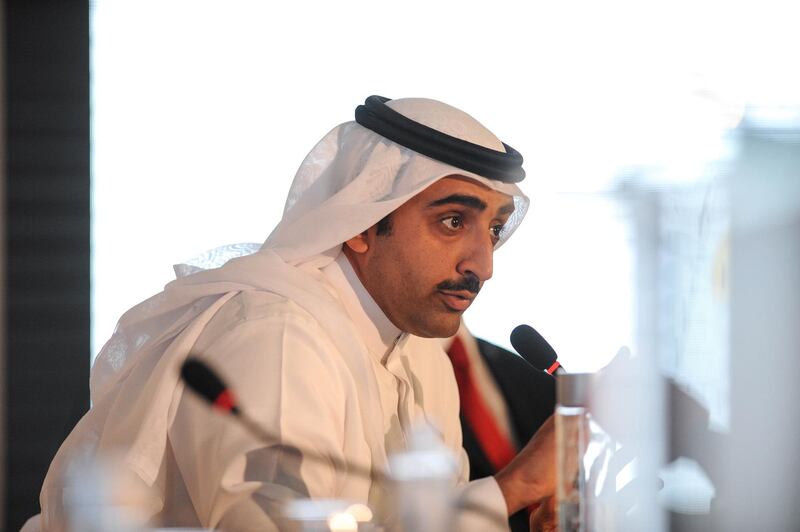Abu Dhabi National Oil Company will supply its first cargo for Bahrain’s liquefied natural gas terminal, which will become operational next year, the country’s oil minister said on Monday.
"We have an LNG terminal in Bahrain that is going to be commissioned next year and our first commissioning cargo is going to be imported from Adnoc, they gave us the best price,” Sheikh Mohammed bin Khalifa Al Khalifa said in Abu Dhabi during Adipec.
The LNG terminal has been developed to have a capacity of 800 million standard cubic feet per day.
Bahrain, the region's smallest oil producer, has built an LNG import terminal to meet its growing gas needs. The country, which is not a member of Opec, announced the discovery of 80 billion barrels of shale oil and 20 trillion cubic feet of gas offshore earlier this year.
The LNG cargoes would be for “security of supply”, said the minister.
"We’re trying to develop our indigenous gas, we have new discoveries. We’re working on the geology, we’re drilling wells onshore,” he added.
__________________
Read more:
Bahrain says it has discovered 80 billion barrels of shale oil
Bahrain's largest oil discovery since 1932 'can be game changer'
New oilfield has large amounts of tight gas and oil
__________________
Bahrain said in April it had reached an agreement with US oilfield services company Halliburton to commence drilling on two appraisal wells in 2018, to further evaluate reservoir potential, optimise completion and initiate long-term production.
The country’s oil and gas authority was looking at offering government to government deals (G2G) to lure international oil companies. It is also engaging with oil service companies to revive exploration in the country, which has some of the highest break-even prices for oil regionally.
"Exploration budgets disappeared [during the price downturn] so to attract them we offered G2G without being linked to a concession cost and one of the companies that was interested is Eni and they've been working with us for a full year," said the minister.
“It was a smart strategy because they’re now ready to sign a concession based on the full year. The concept certainly allowed IOCs [international oil companies] to come in when the oil prices were low for the last three to four years when there was very little exploration happening in the world."
Bahrain, the first producer of oil in the Arabian Gulf, was one of the earliest to run dry of its resources. However its discovery earlier this year is expected to be a game changer for its economy saddled with rising debt.
Prior to the new finds, Bahrain’s reserves for gas stood at around three trillion cubic feet, with production averaging 547 billion cubic feet per day, according to the CIA Factbook. Bahrain’s 80 billion barrels of oil locked in tight reservoirs offshore outsize current proven reserves of 124.6 million barrels, according to figures from the data bank.







